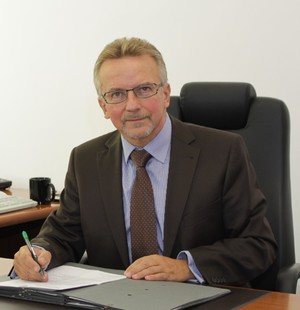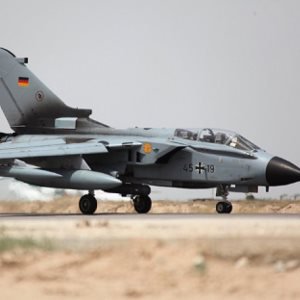Following today’s decision to deploy the Bundeswehr in Syria, BAKS President Karl-Heinz Kamp talks about key issues concerning the operation.
Why is Germany deploying soldiers to Syria?

Dr. Karl-Heinz Kamp, President of the Academy. Picture: BAKS
The Islamic State and the other Islamist terror groups in the region can only be contained with military force. Of course the problem cannot be solved by military means alone, but the destruction of command structures and the attacks on transport routes as a means of preventing oil smuggling are important measures. Their purpose is to permanently weaken IS and to pave the way for a political solution in the region. Solidarity with our French friends also demands that we provide relief to the French armed forces. France is very grateful that we are deploying 1,200 soldiers because this frees up more of their own troops to fight IS in the Middle East.
What is it that the Bundeswehr can do that the Americans, the French and the Arabs cannot do themselves?
We are only strong if we stand together. This operation essentially has three objectives: showing solidarity with France, one of Germany’s closest partners; providing a visible sign that Germany is actively participating in the international effort to fight IS; and – finally – showing our clear commitment to Europe and its values. What kind of signal would we have sent if the Franco-German engine of European development had failed when faced with such an important issue?
Would it not be more prudent to stay out of the conflict?
Nobody can stay out of this conflict. Because terrorism is being brought to our countries by others. One shouldn’t forget Al-Qaeda’s seven-step plan to establish a caliphate that was announced in 2005. In phase six, the plan provided for the beginning of an all-out confrontation with the West. What seems entirely absurd from our point of view is being taken very seriously by Islamist terror groups, and they are essentially not making any distinction between France, the United Kingdom or Germany.

A German tornado fighter jet getting ready for takeoff. Picture: Bundeswehr
Is Germany being dragged into an unpredictable war?
The operation against IS is a combat operation. It is debatable whether it should be called a war, because the term war is usually associated with a confrontation between states. In any case, it is a dangerous operation, the outcome of which cannot be foreseen today. Doing nothing, standing aside and simply hoping for the best is not an option, however. This has been understood by our politicians and the general public, which is why the operation has found wide acceptance among the population.
Will the Bundeswehr’s participation lead to an increased danger of terror attacks in Germany?
We were already facing an increased risk in this respect. It has always been an illusion to think that doing nothing will protect us from being targeted by terrorists. We already have Islamist terrorists in our country. In fact, Germany is already exporting terrorism: young and deluded Germans are travelling to Syria to join local terrorist groups. And we are re-importing the terrorist threat later on, when these fighters return to Germany. We will have to live under the acute threat of terrorism for a very long time.
Is it not necessary to first develop an overall strategy?
This is a popular demand, although it does not make much sense. Given the conflicting interests of the Assad regime, the countless rebel groups, Russia, Iran, Saudi Arabia and of others, there can be no overall strategy at this point. At the same time, the German government in particular is focusing on diplomacy and searching for a political solution, e.g. through the negotiations in Vienna. At this point nobody knows what the order in the region will look like in the long run. IS will not wait for us to finish our strategy debate. We must take immediate action, with the condition being that the situation is reassessed in a few months’ time in order to make any necessary adjustments.
Author: editorial staff
